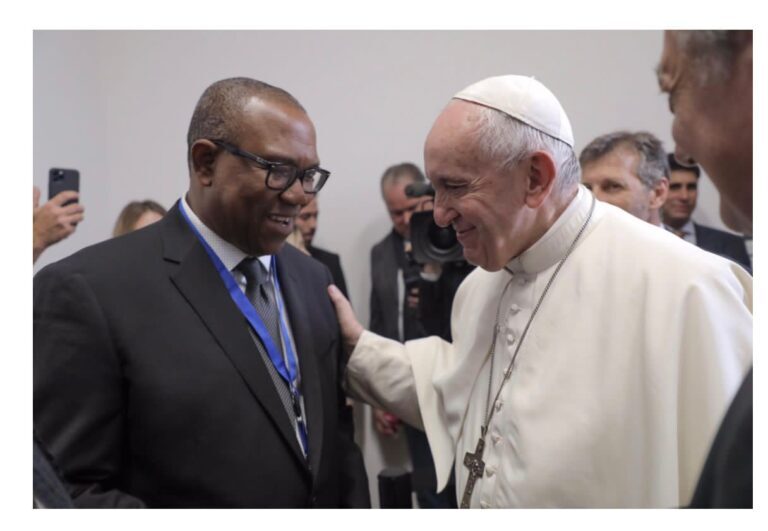The pope, who is the head of the Catholic Church passed away on Monday, April 21, at the age of 88.
Mr. Obi, in a post on Monday via his X (formerly Twitter) handle said: “I received with profound sorrow the news of the passing of the Holy Father, Pope Francis. His death marks the end of another era in the spiritual and moral leadership of the Catholic Church and the wider world.

“Throughout his life and pontificate – during which I had the privilege of meeting him on three occasions – Pope Francis embodied the virtues of faith, hope, and compassion. He led with humility, spoke with wisdom, and acted with moral courage. He constantly strove to draw humanity closer to the ideals of peace, justice, and love. His deep concern for the poor, his steadfast advocacy for moral leadership, and his defence of human dignity earned him the admiration of people across all faiths and nations.
“As a member of the Scholas Occurrences Foundation, founded by Pope Francis, I deeply appreciate his belief in education, dialogue, and youth empowerment as vital instruments for building a more just and compassionate world.
“Pope Francis devoted his life to the service of God and humanity. His legacy will live on not only in the hearts of the faithful but also in the global conscience he helped shape with grace, clarity, and conviction. In an age marked by division and uncertainty, his voice remained a steady call to unity, mercy, and justice.
“On behalf of myself, my family and millions of Nigerians who found inspiration in his teachings and example, I extend my heartfelt condolences to the universal Church. May God, in His infinite mercy, grant eternal rest to his gentle soul and guide the Church he so lovingly shepherded.









